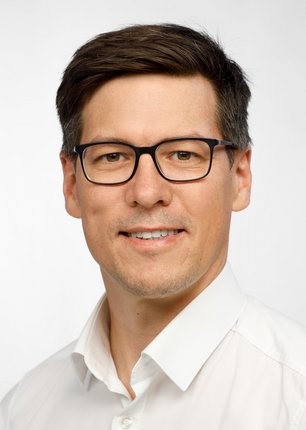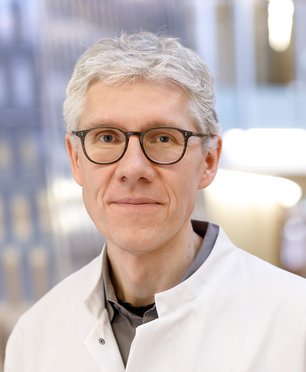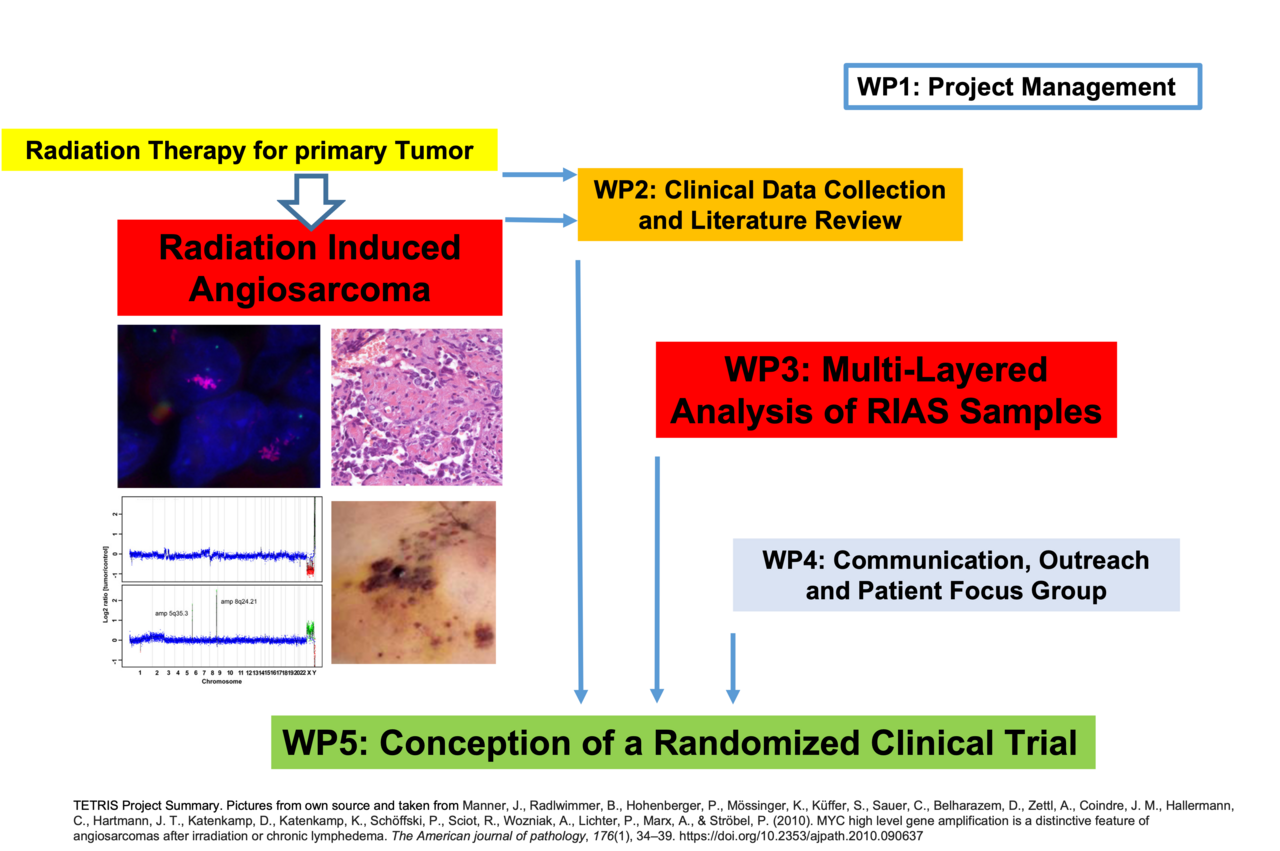Seed Funding Program 2023
TETRIS
Radiation-induced sarcomas and their molecular ecosystems -
The "Tumor EcosysTems in Radiation-lnduced Sarcomas (TETRIS)" project.
Coordinators

Jens Jakob
Sarcoma Surgery, UMM


Stefan Fröhling
Translational Medical Oncology, DKFZ
Detailed description
Sarcomas are tumors of the soft tissue. Sarcomas can occur in both childhood and adulthood, but they differ in terms of their subtype, prognosis and treatment.
Sarcomas can occur not only as primary tumors, but also as secondary tumors - for example due to previous radiotherapy. Little is known about the development and risk factors. The treatment options are limited. Surgery often leads to considerable functional and cosmetic consequences. Radiotherapy and conventional chemotherapeutic agents have only a limited effect on radiation-induced sarcomas.
Radiation-induced angiosarcoma (RIAS) is the most common subtype of radiation-induced sarcoma. RIAS are usually highly aggressive (G3) tumors that occur on average five to seven years after radiotherapy - for example after radiotherapy for breast cancer.
The genetic material of radiation-induced sarcomas typically differs from that of other sarcomas. We suspect that these typical genetic changes may provide targets for targeted tumor therapies. However, a better understanding of the development and risk factors is necessary beforehand.
The TETRIS project has set itself five broad goals:
- Analysis of the characteristics of radiation-induced sarcomas and their microenvironment at different molecular genetic and single cell levels.
- Evaluation of the therapy of the primary (type of radiation, radiation dose and frequency, concomitant chemotherapy) and patient factors in relation to possible risk factors for the development of radiation-induced sarcoma.
- Integration of affected patients with radiation-induced sarcomas into research. For example, in the context of follow-ups to evaluate quality of life.
- Provide focus group-oriented, evidence-based and understandable patient information on radiation-induced sarcomas to promote patient education and shared decision-making. In addition, an insight into the information needs of patients can be gained.
- Development of clinical study concepts in collaboration with sarcoma patients in order to meet the considerable unmet clinical need and to be able to offer affected patients new therapeutic perspectives.
The TETRIS team includes sarcoma specialists from various disciplines at five different sarcoma centers, a clinical scientist as well as pathologists, research specialists of the German Cancer Research Center (DKFZ) as well as representatives of the Cancer Information Service (KID) of the DKFZ and a patient representative the German Sarcoma Foundation.
